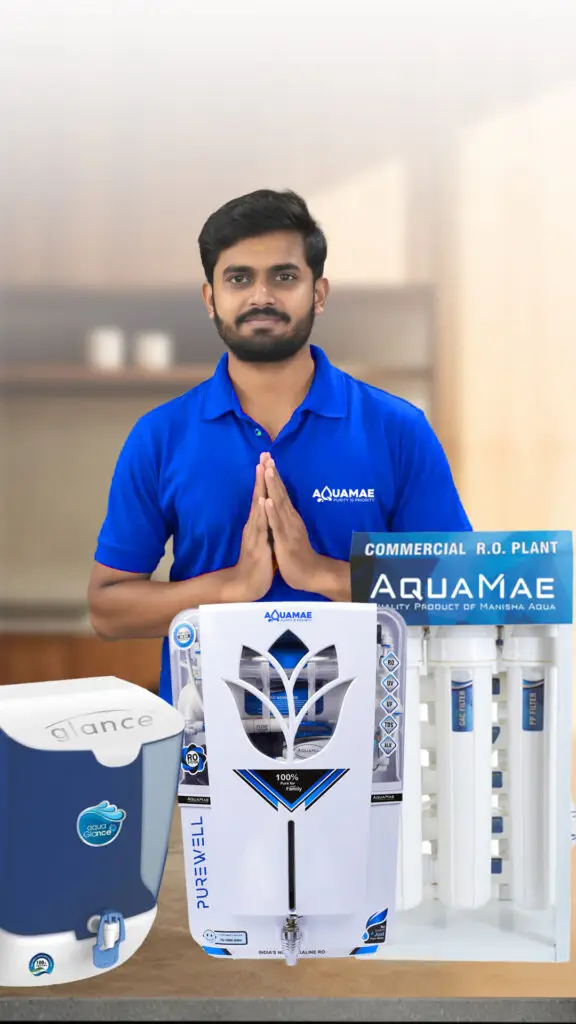Water Info – Choose the Right Purifier for Your Needs"

Intrduction
Clean and safe drinking water is the foundation of a healthy life. However, not all water sources are the same, as their quality varies depending on the Total Dissolved Solids (TDS) level. TDS includes minerals, salts, and impurities that can impact water’s taste, quality, and safety.
Choosing the right water purifier depends on your water’s TDS level, which determines whether you need basic filtration or advanced purification like RO, UV, or UF. In this guide, we’ll help you understand TDS levels and recommend the ideal purifier to ensure your water is always pure, healthy, and safe for consumption.
Understanding TDS
What is TDS?
TDS stands for Total Dissolved Solids. TDS is the total concentration of dissolved substances in water, which includes essential minerals, salts, organic matter, and impurities. These solids can come from natural sources, water treatment processes, or even contamination from pipes and plumbing.
TDS is measured in terms of parts per million (ppm), meaning milligrams of dissolved solids in one liter of water. Although a fraction of these dissolved solids benefit the human body, on average, more TDS causes much damage in terms of the taste, look, and safety of water.
Level of TDS Quality of Water
There are three ranges classified for measuring quality based on amounts of TDS. Here’s how,
0–50 ppm
Quality: Excellent.
Details: Pure and safe water, mostly derived from distilled or demineralized water. Drinking water but lacks the minerals that are required.
50–150 ppm:
Quality: Good
Details: The water is suitable for drinking with a balanced amount of necessary minerals. Safe and nutritious.
150–300 ppm:
Quality: Fair
Details: The water is safe to drink, but the water is a bit hard. Minimal treatment would make it even better in terms of taste and clarity.
300–500 ppm:
Quality: Poor.
Details: Water quality deteriorates, and it shows obvious hardness and impurities. Requires purification to remove excess salts and contaminants.
500+ ppm:
Quality: Very Poor.
Details: Contains harmful salts, heavy metals, and impurities in large quantities. Not safe for drinking without advanced purification.
Choosing the Right Purifier
To ensure your water is safe and healthy, it’s important to choose a purifier that matches your water’s TDS level. Here’s a quick guide:
| TDS Level | Water Quality | Recommended Purifier |
|---|---|---|
| 0–150 ppm | Soft and safe water | UV Purifier or UF Purifier to eliminate microorganisms. |
| 150–300 ppm | Slightly hard water | UV + UF Purifier for better filtration and added safety. |
| 300–500 ppm | Hard water | RO Purifier with UV/UF to remove salts and improve taste. |
| 500–2000 ppm | Very hard water | RO + UV + UF + MTDS Purifier for comprehensive purification. |
| Above 2000 ppm | Excessively hard water | Industrial RO System or Pre-treatment solutions for high efficiency. |
Why TDS Matters
Very Low TDS (Below 50 ppm)
Water with a TDS content of less than 50 ppm can be deprived of the much-needed minerals in the body like calcium and magnesium. Water in this nature lacks flavor and does not provide any minerals to your body.
High TDS (Above 500 ppm)
If the TDS level is extremely high, it can indicate the existence of salts, heavy metals like lead or arsenic, or any other contaminants in the water. High-TDS water can permanently damage your kidneys.
This leads to a mineral imbalance within the body.
Water deteriorates in terms of taste and smell.
Plumbing and appliances are corroded.
Balancing TDS ensures your water is safe to drink yet full of helpful minerals.
How to Test Your Water TDS
It is simple to check the TDS level of your water by any of the following:
1. TDS Meter
A portable TDS meter is a simple appliance for easy, prompt reading of water TDS levels:
Turn it ON.
Dip in a glass of water up to the marked level.
Wait for the reading to stabilize and note the ppm displayed.
Compare the result to the TDS levels above to determine the quality of your water.
2. Professional Testing
For more detailed analysis on your water quality, including harmful chemicals, heavy metals, and bacterial contamination, contact your local water testing laboratory or contact us for a professional water quality test.
Need Help Choosing?
Not sure which purifier is right for your water? We’re here to help! Contact us for personalized recommendations.
📞 Call Us: 8806693626 / 9370713815
📧 Email: [email protected]